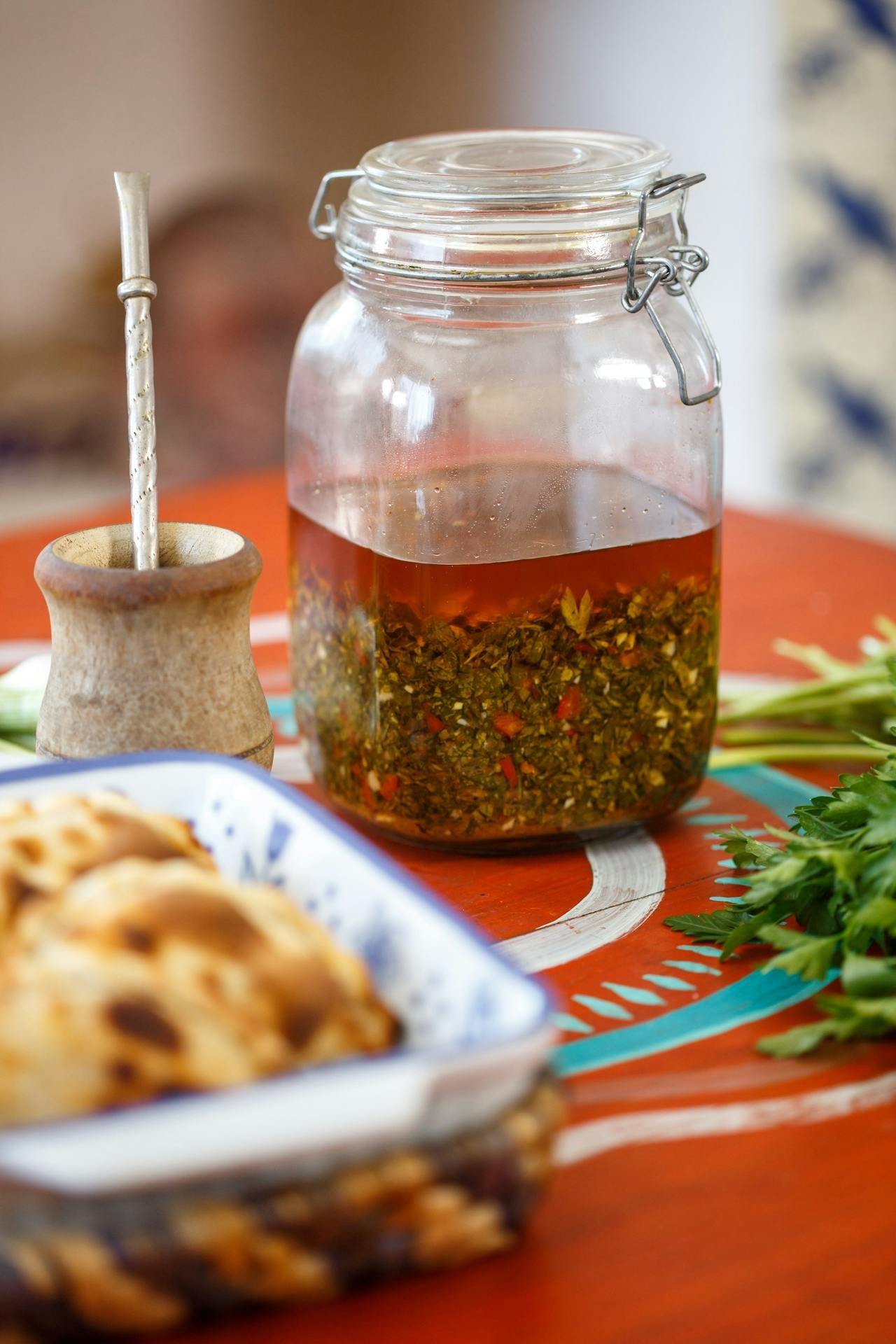Discover the nutrition, health benefits, and side effects of yerba mate tea. Learn how it can boost your health and what to watch for!
Introduction
Yerba mate tea has captured the hearts of tea enthusiasts and health-conscious individuals alike with its rich flavor and numerous benefits. The leaves of Ilex paraguariensis plant is used to make mate tea. Mate tea is a traditional South American beverage, which offers much more than refreshment but it’s packed with essential nutrients and antioxidants, making it a true powerhouse.
As more people incorporate yerba mate into their daily routines, understanding its nutritional profile and health benefits becomes essential. However, like any beverage, it’s important to be aware of potential side effects. In this blog post, we will explore the nutrition of yerba mate tea, delve into its various health benefits, and highlight any side effects to consider, helping you make informed choices about adding this invigorating drink to your lifestyle.
Yerba Mate Tea Nutrition
Yerba mate tea, derived from the leaves of the Ilex paraguariensis plant. It is known for its unique flavor and a variety of nutrition and health benefits.
Nutritional Value of Yerba Mate Tea (per 8 oz serving) contains:
- Calories: 2 kcal
- Caffeine: 30-50 mg
- Protein: 0.3 g
- Carbohydrates: 0.5 g
- Fiber: 0 g
- Fats: 0 g
Vitamins
- Vitamin A: 3-7 IU
- Vitamin C: 1-3 mg
- B Vitamins:
- Thiamine (B1): 0.01 mg
- Riboflavin (B2): 0.02 mg
- Niacin (B3): 0.2 mg
- Pyridoxine (B6): 0.05 mg
Minerals
- Potassium: 80 mg
- Calcium: 4 mg
- Magnesium: 9 mg
- Iron: 0.1 mg
Key Components of Mate Tea
1. Caffeine: Yerba mate contains caffeine, which can range from 30 to 50 mg per 8 oz serving, depending on the preparation method. This Provides a mild stimulant effect that can enhance focus and alertness, and reduces fatigue.
2. Antioxidants: Yerba mate is rich in polyphenols, particularly caffeoyl derivatives, which contribute to its antioxidant properties. It has a higher antioxidant content than green tea, which helps combat oxidative stress in the body
3. Saponins: Yerba mate also contains saponins, which may have anti-inflammatory and cholesterol-lowering effects
Yerba mate tea is low in calories and provides a variety of vitamins and minerals. Its caffeine content makes it a popular choice for boosting energy and mental focus, while its antioxidant properties offer potential health benefits.
Health Benefits of Mate Tea
Mate tea, also known as yerba mate, is a traditional South American beverage. Beyond its cultural significance, mate tea boasts an array of health benefits that have piqued the interest of health enthusiasts worldwide. Rich in antioxidants, vitamins, and minerals, mate tea can boost energy levels, aid digestion, and even promote weight loss. Additionally, its natural caffeine content provides a gentle pick-me-up without the jitters often associated with coffee. Here are some of the recognized health benefits of mate tea:
1. Rich in Minerals and Vitamins
Mate tea is rich in vitamins, minerals, and antioxidants. It contains vitamins A, C, E, and B-complex, as well as minerals such as calcium, magnesium, and potassium.
2. Rich in Antioxidant
Mate tea is rich in polyphenols, which act as powerful antioxidants in the body. These compounds help protect against oxidative stress, reduce inflammation, and combat free radicals that can lead to chronic diseases.
3. Boosts Energy and Mental Alertness
Mate tea contains caffeine, theobromine, and theophylline, which are naturally occurring stimulants. They can provide a gentle energy boost and enhance mental focus and alertness without the jittery side effects often associated with coffee.
4. Enhances Physical Performance
The stimulatory effects of mate tea can also improve physical performance. It has been reported to increase endurance, reduce fatigue, and enhance exercise tolerance. Additionally, mate tea may aid in the breakdown of fatty acids for energy, thereby supporting weight loss and muscle preservation.
5. Weight Management
Mate tea may help with weight management due to its thermogenic properties. It can slightly increase metabolism, leading to a higher calorie burn. Furthermore, mate tea can decrease appetite and increase satiety, which may help reduce overall calorie intake.
6. Heart Health
Regular consumption of mate tea may contribute to improved cardiovascular health. Studies suggest that mate tea can help lower cholesterol levels, reduce blood pressure, prevent the oxidation of LDL (bad) cholesterol, and improve blood vessel function, thereby reducing the risk of heart disease.
7. Digestive Support
Mate tea has traditionally been used to aid digestion. It acts as a natural digestive stimulant and can help relieve constipation.
Additionally, some evidence suggests that mate tea may possess antimicrobial properties, potentially helping to combat harmful bacteria in the gut.
8. Anti-Inflammatory Effects
The polyphenols in mate tea have been found to possess anti-inflammatory properties. This can help reduce inflammation in the body, which is associated with various chronic conditions and diseases.
It’s important to note that while there is evidence supporting these health benefits, more research is needed to fully understand the specific mechanisms and potential risks associated with mate tea consumption. Furthermore, excessive intake of mate tea or pairing it with excessive
Side Effects of Mate Tea
Mate tea, is also known as yerba mate. It is a popular beverage made from the leaves of the Ilex paraguariensis plant. While mate tea is generally considered safe for consumption, it does contain certain compounds that can have side effects in some individuals. Here are some potential side effects of mate tea:
1. High caffeine content
Mate tea contains caffeine, similar to coffee and black tea. Consuming excessive amounts of mate tea can lead to caffeine-related side effects such as insomnia, restlessness, jitteriness, increased heart rate, and anxiety. Individuals who are sensitive to caffeine should consume mate tea in moderation.
2. Digestive issues
Some people may experience digestive problems after consuming mate tea. This can include stomach upset, acid reflux, and diarrhea. These effects are usually mild and vary from person to person.
3. Interference with medications
Mate tea may interact with certain medications. It contains compounds that can inhibit the enzyme CYP1A2, which is responsible for the breakdown of certain drugs. This interference can alter the metabolism and effectiveness of medications, including anti-anxiety drugs, antipsychotics, beta-blockers, and certain antidepressants. Therefore, if you are taking any of these medications, it is crucial to consult your healthcare provider before consuming mate tea.
4. Allergic reactions
Consequently, some individuals may develop allergic reactions to mate tea, experiencing symptoms such as hives, rashes, itching, or breathing difficulties. Therefore, if you have known allergies or are sensitive to plants in the Aquifoliaceae family, including holly, your risk of an allergic reaction may be higher.
5. Increased risk of esophageal cancer
Drinking mate tea at very high temperatures (above 65°C/149°F) and regularly may increase the risk of esophageal cancer. In South America, mate tea is traditionally been consumed at high temperatures. It’s important to allow mate tea to cool down a bit before drinking it to reduce the risk.
It’s worth noting that many of these side effects are associated with excessive intake or long-term, heavy consumption of mate tea. Generally, moderate consumption of mate tea is regarded as safe for most individuals. However, if you have any underlying health concerns or conditions, it is advisable to consult a healthcare professional before making substantial dietary changes or consuming large quantities of any beverage.
Conclusion: Sipping the Spirit of Mate Tea
In a fast-paced world filled with fleeting moments, mate tea offers a timeless reminder to slow down, savor the present, and connect with others on a deeper level. Whether you are captivated by its rich history, health benefits, or bold flavor, one thing is certain: mate tea is much more than a drink—it is a celebration of culture, community, and life’s simple pleasures. So, the next time you’re with friends or enjoying a peaceful moment, why not brew a pot of mate tea and savor the experience of its storied world?
Reference
- Yerba Mate. 6/11/2021. https://www.rxlist.com/supplements/yerba_mate.htm
- Maté. https://www.drugs.com/npc/mat.html
- Are there any side effects of yerba mate? 4/5/22. https://www.kusmitea.com/int/mate-bad-for-you/artmm-19.html
- Yerba mate. Sarfaroj Khan.4/24/2023. https://www.medicinenet.com/yerba_mate/article.htm
- 7 Health Benefits of Yerba Mate (Backed by Science). Amy Richter and Alina Petre. January 11, 2023. https://www.healthline.com/nutrition/8-benefits-of-yerba-mate
- Yerba Mate: Health Uses and Safety Risks. Lindsey DeSoto. May 23, 2023. https://www.verywellhealth.com/yerba-mate-tea-uses-safety-7496097
- 9 Unexpected Benefits and Risks from Yerba Mate Tea. https://afternoonteareads.com/benefits-and-risks-yerba-mate/
- Cameron, J. D., et al. (2017). “Yerba Mate: A Review of Its Beneficial Effects on Health.” Food Chemistry, 236, 5-12.
- González, M. J., et al. (2018). “Nutritional and Functional Properties of Yerba Mate.” International Journal of Food Sciences and Nutrition, 69(4), 420-430.
- Pérez-Jiménez, J., & Neveu, V. (2016). “Antioxidant content of yerba mate and its health benefits.” International Journal of Food Sciences and Nutrition.






Pingback: Jasmine Tea: Exploring the Fragrant World of Jasmine Tea
Pingback: Jasmine Tea: Health Benefits and Potential Side Effects - Kerec Food and Health